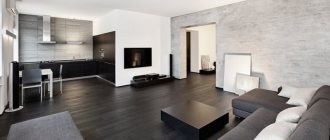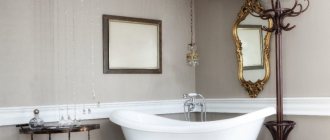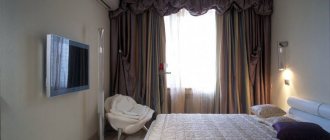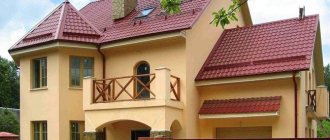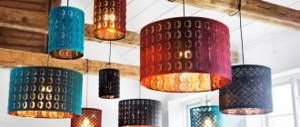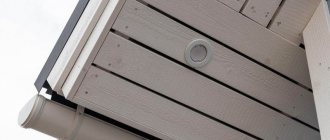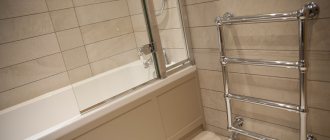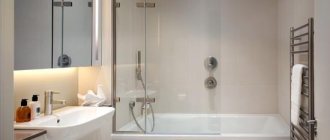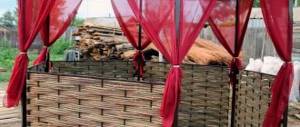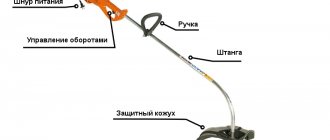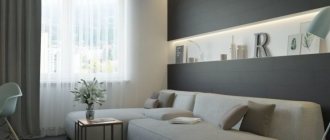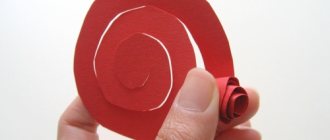Roll roofing: a simple solution
If you are looking for a fairly simple and reliable solution for your roof, then pay attention to rolled materials for soft roofing, which have been tested for decades.
The main ingredient of popular rolled roofing felt materials is bitumen. Bitumen for the roof is primarily good because it does not support the combustion process. Secondly, it has high heat-saving and noise-insulating qualities, which is valuable for attic spaces. And thirdly, it perfectly withstands any atmospheric and temperature influences, and therefore, as a material for roofing, it is practically irreplaceable.
Roll materials are good for roofs that have a slight slope. Their main advantage is their low cost, light weight, ease of installation and absolute corrosion resistance. The disadvantages are fire resistance and periodic repairs that are necessary.
Roofing carpet is rolls that need to be rolled out in two layers. The top one can additionally be coated with a special protective coating.
The following types of materials are used as a roll roof:
- Basic and non-basic with the structure of the canvas.
- Polymer, bitumen and bitumen-polymer.
- Asbestos, cardboard, fiberglass and combined.
- With foil, film, dust, flakes, coarse-grained and fine-grained toppings.
According to the installation method, roll roofing is divided into traditional ones, such as roofing felt and glassine, and more modern ones, which are literally melted with the help of fire and glued to the base. This type of roofing is also called “floated roofing”. You can handle the installation of such a roof yourself if you get hold of professional equipment and learn a little:
Why bother with such complex technology? There is one significant plus in a built-up roof, which overshadows all the minuses - absolute, 100% final tightness.
Have you decided on a rolled soft roof? Then learn to understand its quality before purchasing. Thus, bituminous materials are produced oxidized and non-oxidized. What is the difference, because you will probably come across such concepts when choosing a roll roofing? The fact is that ordinary bitumen softens under the scorching sun already at a temperature of 45-50°C. You don't want hot streams of resin forming on your roof on a regular July day, do you? This is the purpose for which another type of material is produced - oxidized bitumen, which tolerates heat remarkably well, but loses its frost resistance.
It turns out that the first type of materials is more appropriate for the southern regions of the country, and the second for the northern regions. When calculating what you will need for your home in the middle zone, just find out the average temperature in summer and winter and decide what is more important to you - resistance to temperature deformations and or frost. It is important!
By the way, polymer-bitumen roofing is a combined material that has a much wider range of operating temperatures. But its price, of course, is much higher. So choose!
Flexible tiles (soft roofing) types and prices
We offer soft roofing materials at competitive prices. Buy soft roofing and components for installing soft roofing wholesale and retail with delivery throughout Moscow and the Moscow region. Cost and durability are the advantages of soft tile roofing. Buy soft tiles at a competitive price per 1 sq. meter (m2), you can order installation of soft roofing and delivery on our website. To buy a soft roof, place your order online or call.
Flexible tiles will help speed up roof installation and save money. Soft roofing, which is affordable, can withstand adverse weather conditions and the effects of ultraviolet rays.
Installing a soft roof is a simple process that does not require special skills or tools. That's why laying soft roofs has become so popular. In addition, our company offers soft roofing from world brands.
We offer soft roofing (flexible tiles) at competitive prices in Moscow from world-famous manufacturers:
Flexible tiles Docke
Bituminous shingles Katepal
Soft roof Tegola
Soft roofing Shinglas
Mastic roofing: for any height differences
Roofing mastic is a fairly popular material for installing soft roofs. It is a liquid viscous mass that must be applied to a hard surface, and after hardening we obtain a monolithic coating that no longer needs waterproofing.
The installation itself of such a soft roof in most cases requires the professionalism of a work team and certain equipment. Thus, the polymer mass must be heated to 160°C, and then applied to the prepared base using a brush or spatula. Less often, just pour it out and level it, it all depends on the materials used. Troublesome! But, of course, they also produce mastics that you can handle on your own, having first studied the general technology and the attached instructions.
But modern bitumen-polymer mastic is valuable for its combined properties: in addition to creating reliable waterproofing, it protects against mold and dampness, and is excellent for wooden and concrete roofs. Seams and joints on the roof are especially well sealed with this mastic, and the aesthetics are pleasing to the eye. And, what’s good, even over time, when the flat roof itself is subjected to mechanical deformation, the tightness of its coating is not compromised.
Do you have a flat roof on your garage or home that has uneven surfaces and persistent cracks and are looking for a sealable, durable coating? Then roofing mastic is ideal for you. Just choose the option that suits you most. After all, all mastic roofs are classified as follows:
- unreinforced;
- reinforced with special fabric;
- combined.
Unreinforced soft mastic roofing is a waterproofing carpet made of bitumen-latex emulsion as a base and a layer of hot mastic as the top 10 mm layer.
Reinforced differs from it in that the cast carpet already has at least three or four layers: fiberglass, fiberglass or fiberglass mesh, bitumen mastic or bitumen-polymer emulsion. Those. A certain roll of material is preliminarily laid under the hot mastic. For what? Increase final strength and durability!
The mastic itself can be applied both hot and cold, manually or using a sprayer. One layer is applied, hardens, then a second one. As a result, the roof is smooth, without joints and problem areas. It feels like rubber to the touch. Exactly what is needed?
What roofing materials do we work with?
When performing turnkey roofing installations, we use modern building materials. These are corrugated sheets, soft tiles, composite tiles, and metal tiles.
Profiled flooring
This is a corrugated rigid sheet with a wave height of 35mm or more. Material – galvanized steel with polymer coating. Corrugated sheets have high bending strength and can withstand heavy loads.
Soft tiles
The coating has the form of multilayer elements (another name is “shingles”). Flexible standard tiles consist of several layers:
- Decorative top layer.
- A bitumen layer with special additives to impart resistance to deformation and flexibility.
- The base is made of organic cellulose impregnated with a binder polymer composition.
- Bitumen with self-adhesive surface.
- Protective film to prevent parts from sticking together during storage or transportation.
Composite tiles
It is made from an alloy of aluminum and zinc, stone chips (granulate), coated with acrylic varnish to protect the material from moisture, temperature changes, ultraviolet radiation and other atmospheric influences.
Metal tiles
It is a profiled sheet of cold-rolled steel coated with a polymer protective layer. The alloy composition includes: zinc + aluminum. Snow should not linger on the sloping surface, so this type of roof is suitable for structures with a slope of at least 14 degrees.
Membrane roofing: a universal option
Membrane roofing is installed only on a flat base. The main advantage of this material for soft roofing is durability. The fact is that modern roofing membrane is the most suitable coating for the Russian climate. It easily tolerates both sultry heat and cold, and any sudden temperature changes. It does not rot in damp swampy areas, does not corrode, and at the same time it also allows steam from a residential building to pass through it.
Here are the main types of membrane roofs:
- PVC. This roofing material is made from polyvinyl chloride reinforced with polyester mesh, plus plasticizers. As a result, we get resistance to almost any impact and good strength. The downside is low environmental friendliness and volatile chemicals that are harmful to humans.
- TPO. These membranes are made of polyester and fiberglass, with or without reinforcement. The only significant drawback is poor elasticity when compared with other types of soft roofing.
- EPDM. These membranes are made of synthetic rubber, plastic and high quality. They use special polyester threads as reinforcement, and not the cheapest ones. The only difficulty is that such membranes can only be held together with glue.
The installation of a membrane roof is the most cost-effective solution for large flat roofs of industrial and residential buildings, if the demands on the quality of the coating are high.
Do you need a roof that can easily withstand all the vagaries of the local climate and will serve faithfully for at least 30 years? Then opt for modern membrane materials.
Which roof to choose
Everyone focuses on several basic criteria when choosing a roofing material. But we can highlight the main points that are worth paying attention to.
Criterias of choice
- Durability. This parameter is very important, since the roof should not require frequent repairs and increased attention to itself. The service life is affected not only by the type of material chosen, but also by the quality of installation.
- Type of structure, its purpose and roof design. Naturally, for outbuildings there is no point in purchasing expensive elements, while a residential building requires a more careful choice.
- The most important is also the financial aspect. Naturally, it is necessary to evaluate the material based on the price/quality ratio, but you also need to take into account the cost of installation based on the roof area, and the features of creating a rafter system. The priority in this case remains metal tiles, ondulin, bitumen shingles and corrugated sheets. Those who prefer piece materials should understand that installation will be more complex and, accordingly, more expensive.
- Aesthetics. The roof should give the building or structure a finished look, while harmoniously fitting into the overall concept of the object, combined with the surrounding landscape and the walls of the building.
What does the choice depend on?
The choice of roofing material depends, first of all, on the main parameters of the roof of the house: decorative features, reliability and weight of the material. In addition to attractive external parameters, the load on the walls should be taken into account. For example, natural tiles weigh 15 times more than metal ones.
The service life is indicated without taking into account some factors: operating conditions, climate features. For example, it is worth understanding that in hot climates, asphalt shingles will not last long.
Soft tiles: the ideal solution
Looking for something universal for a pitched roof? So that there is no loss in either practicality or aesthetics? Of course, only soft tiles!
Firstly, you can easily handle the installation of such a roof with your own hands. And secondly, it is difficult to find a material softer than bitumen shingles - even the most complex architectural objects can be finished with it, and at the same time they will look amazing!
Moreover, bitumen is a material so flexible that it can be used in the most intricate roofs. Imagine how much metal would have to be bent to get around the spectacular turret? And how neat would such “patches” look? But with flexible sheets everything is much simpler.
That is why soft roofing made from bitumen shingles is actively used in many European countries, Canada, the USA and Finland. After all, both almost flat roofs, from 10° inclination, and almost vertical roofs, up to 90°, are suitable for this covering. At the same time, the price of this material is pleasing to the eye, and the color solutions will allow you to implement the most fashionable and modern design styles.
Bituminous shingles are close in origin to traditional roll roofing, but various stabilizing elements have been added to its composition, which allow the cuts to keep their shape on pitched surfaces. Also included are the following substances:
- Special SBS modifiers, thanks to which the roof is flexible and does not break at bends.
- APP modifiers, thanks to which the roof can perfectly withstand the hot sun and heating up to +120°C.
That is, the same bitumen, only improved.
So what is this material? Bituminous shingles are a piece of material made from shingles of a wide variety of design cuts and colors. When combined creatively, they create a beautiful colored pattern on the roof, and also have many other advantages.
Each tile, or shingle, is a reinforcing fiberglass with bitumen mass on the sides. The upper side of the soft tiles is covered with crumbs of basalt granules on hot bitumen, thereby creating a reliable coating. It also prevents the snow from moving like an avalanche in winter, as often happens on slippery surfaces.
And the three-layer lamination – up to 10 mm – makes bitumen shingles especially durable. As a result, the soft roof is of such high quality and durable that it is safely guaranteed for life.
Modern manufacturers offer the market a huge number of types of bitumen shingles cuts and a rich range of colors. For example, at one time a hexagon with a shadow was popular, and recently laminated bitumen roofing has become very popular, which looks even more stylish and lasts longer.
As for fashion, when choosing the colors of soft tiles today, preference is given to calm natural shades: brown, green and gray. And these are the brands they trust.
Shinglas tiles from TechnoNIKOL
According to the manufacturer, Shinglas soft tiles are developed at three TechnoNIKOL plants at once, and a significant share of them is exported to Europe. And this already indicates compliance with international standards.
In tiles, basalt, slate and slag are used as toppings - depending on what color and shade is needed. Sold in two types: single-layer and double-layer. The second type is different in that here two sheets are already glued together using bitumen, which gives a certain visual superiority and good quality. Single-layer tiles have a special shadow applied to them to imitate the presence of a second layer, while double-layer tiles have a beautiful texture of natural shingles that catches the eye from afar. In addition, the color mixing of such tiles is done at the factory, and its sheets do not need to be mixed on the ground to create the desired design.
And a new product in the Shinglas series is laminated tiles, which are especially durable and look even more voluminous and natural. Is the aesthetic side important to you? Then this soft roof is right for you.
Here is the technology for laying such tiles:
Ruflex Esten tiles
The soft tiles of this brand are based on fiberglass and bitumen, and on top are stone granules. The tiles from this manufacturer have an increased safety margin, class A, thanks to two layers of special reinforcing fiberglass. The strength is so high that you can even walk on such tiles during installation! By the way, the installation itself is simple - each shingle has a self-adhesive strip on one side, so no hair dryers are needed for the work.
Another valuable advantage of tiles from Ruflex Esten is a special treatment against moss. In fact, the growth of all kinds of lichens on soft roofs is a particularly acute problem for regions with high air humidity. It is almost impossible to fight this scourge using mechanical methods - the tiles simply break, crumble and fly off.
Here, the manufacturer took care of everything: sheets of roofing material are coated with zinc or copper during the production process, and nothing unnecessary will take root on the future roof. And the guarantee for these tiles is 35 years.
Have you had to deal with moss on your roof before? Buy this roofing covering.
CertainTeed Shingles
These tiles have a fairly wide range of models, from the most economical to the expensive and elite. But the most important feature is that the laminated tiles of this brand have a lifetime guarantee! And thanks to the fact that the company has been on the market for more than 100 years and still pleases with its quality, its brand is recognized in the United States as No. 1.
CertainTeed tiles are produced in two-layer and three-layer laminated versions using a special patented technology, which involves sintering the layers. As a result, the thickness of the bitumen coating is more than 1 cm, which reliably protects the roof from any leaks.
This soft crawl is made from non-woven fiberglass and bitumen made from Venezuelan oil. Additionally, polymer additives are introduced. And in the end, the installation itself is as simple as possible: no hair dryers or additional equipment, just remove the protective silicone film from below and glue the shingles like stickers in a book. Another nice thing is that CertainTeed offers a 10-year guarantee that these soft shingles are free from moss.
Is quality the main thing for you? Then choose these tiles.
Katepal tiles
Katepal is a rapidly growing brand of shingles with production facilities located in Finland. Venezuelan oil is also used here as a raw material for bitumen, which in terms of its parameters is recognized as the best raw material for roofing bitumen materials.
Katepal has a wide range of choices, where you can choose both a strict Gothic style and a modern high-tech style for the roof of your house. Paradise for designers! And many technical characteristics of Katepal tiles are even better than those of other analogues. For example, there is a wider operating temperature range - from -50 to +120°C, an inclination angle from 11 to 90°, and a weight of only 8 kg per square meter. Katepal tiles are attached with self-adhesive tape plus nails.
Interested in easy installation? Then stop your choice on these flexible tiles.
Roof tiles
This is new for 2014. Buyers are pleased with the wide choice of colors and the availability of all elements necessary for installation - roofing mastics, nails, underlay carpets and membranes.
The collections of this brand feature a unique shingle shape and good shades that are ideally combined with artificial and natural facade materials. The tiles are suitable for any climatic zones, have sound insulation and resistance to precipitation, do not rot, do not grow moss and easily fit on the most complex structures. The warranty period is 50 years.
Both practical and aesthetic. For Russia - the best!
Types of coating
Roofing material is one of the important parts of the protective shell of a building that protects it from external pressures. Modern types of roofing materials are characterized by such characteristics as durability and reliability. They can be made from a variety of materials: from simple wood to modern polymers.
The types of roofing available on the modern market are divided into five main types:
- Piece;
- Roll;
- Mastic;
- Sheet;
- Film.
The first type includes tiles, slate and wood. Of the variety described, it is worth highlighting ceramic tiles, which enjoy a high level of popularity among consumers due to their long period of operation. The piece coating absorbs solar radiation and has sufficient sound-absorbing characteristics. The roll type is resistant to cold, high temperatures and decomposition. Sheet roofing is durable and has a wide selection of colors and types. The mastic type is characterized by resistance to oxidation, low temperatures and the negative effects of sunlight. Membrane or film coating is easy to install. Most suitable for structures with a strong foundation. In addition, types of roofing materials for roofs differ in material, physical properties and purpose.
Composite tiles (composite roofing) at a price per m2
Composite tiles, which you can buy in our online store, are a new roofing material on the Moscow construction market. Composite tiles are similar in appearance to metal tiles, which is why composite tiles are called metal tiles with stone chips. However, properties and performance differ. The service life of a composite roof starts at 35 years or more, and the price corresponds to the declared characteristics and quality.
Composite tile roofing is made of high-alloy steel 0.4 - 0.6 millimeters thick, which is coated with a layer of zinc, aluminum and silicon, which protects against corrosion. The outer side of the composite tiles is covered with quartz or basalt and a protective acrylic layer, this makes such a roof akin to natural ceramic tiles. Composite tiles, like metal tiles, are based on a steel sheet coated with aluminum-zinc coating, which extends the service life of the roof for decades
Composite tiles Luxard (Luxard)
Corrugated sheeting for fences and roofing
It is profitable to buy corrugated sheets (corrugated sheets) at manufacturer prices in our online store. I will sell profiled sheets wholesale and retail from a warehouse in Moscow. We sell corrugated sheets from a warehouse in Moscow at a price per sheet with zinc or polymer coating. There are discounts and special offers for wholesale and regular customers.
Our company offers inexpensive purchase of roofing, fence and wall corrugated sheeting in Moscow. Thanks to the construction products market, it is easy to buy corrugated sheeting from the manufacturer. We sell profiled sheets at wholesale prices. Our website shows the price of corrugated sheets per sheet and square meter.
It is worth noting that prices for corrugated sheets depend on the thickness of the material, processing features, sheet sizes and profiles.
Corrugated sheeting is made by rolling flat steel blanks on special machines. Corrugated sheeting, whose price is lower than the price of tiles and a number of other roofing coverings, copes with the function of a reliable roofing material.
Corrugated sheets up to 12 meters in length; one sheet of corrugated sheets covers 12 m2 of roof. Installation and assembly of corrugated sheeting is easier than metal tiles and soft roofing. Installation time is reduced and the family budget is saved.
Are you looking for where to buy corrugated roofing sheeting in Moscow? — We sell corrugated sheets from Russian manufacturers:
Grand Line corrugated sheet
Corrugated sheet Metal Profile
